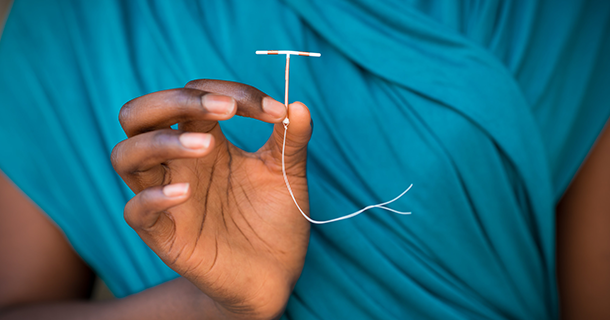Where We Work
See our interactive map


Photo by Clement Tardif for IntraHealth International
Let’s not let another second, day, or year go by where we fail to address the demand for family planning in Tanzania.
Providing contraception and reproductive health services to those who want them globally would cost $3.6 billion per year. But, according to 60 teams of economists and representatives from the United Nations, NGOs and private sector businesses, that investment would generate annual benefits around $432 billion.
That’s a $120 return per dollar spent.
In fact, these teams ranked access to contraceptives as the second highest on a list of scenarios that could generate the highest returns on investment in international development today.
Aside from the impressive returns, family planning significantly improves health and wellbeing. In 2017, 3,840,000 women in Tanzania used a modern method of contraception. That’s an estimated 1,054,000 unintended pregnancies, 313,000 unsafe abortions, and 3,000 maternal deaths averted.
But Tanzania still faces some big family-planning challenges.
According to the Tanzania Demographic and Health Survey, the national modern contraceptive prevalence rate is 32% among married women. Sixty-one percent of married women ages 15-49 want to avoid pregnancy, but of these women, 22% are not currently using family planning (also known as unmet need), putting them at risk for unintended pregnancies. Among unmarried, sexually active women, the percentage of women who want to avoid pregnancy increases to 79% and unmet need reaches 25%.
The percentage of women who want to avoid pregnancy but are not using contraceptives has remained constant, around 22-24% since 1999.
Modern contraceptive use by married women has steadily increased over the last decade, from 20% in 2004-2005 to 32% in 2015-2016. But the percentage of women who want to avoid pregnancy but are not using contraceptives has remained constant, around 22-24% since 1999. And the percentage of births by women who reported wanting another pregnancy but at a later time has increased from 18% in 2004-2005 to 27% in 2015-2016.
Unmet need for family planning among women is even higher among certain groups—such as women in the Lake Zone region and among poor women with limited education.
The evidence is clear: the time for Tanzania to invest in family planning is now.
IntraHealth International, with funding from the UK Department of International Development (DFID), is working with the Government of the United Republic of Tanzania to increase women’s use of modern family planning methods. In partnership with PSI and Restless Development, we are specifically helping the government improve the availability and quality of family planning services both through existing public service delivery points and outreach outlets in ten regions, 22 districts, and 165 health facilities.
Since 2015, IntraHealth and PSI have:
And these changes are making a difference.
The number of clients who choose a family planning method—including injectables, female and male condoms, IUDs, implants, emergency contraception, pills, and natural methods—has more than doubled. At project baseline in 2014, 146,190 women accessed family planning services in project-supported sites. In 2017, it was 323,796.
Let’s not let another second, day, or year go by where we fail to address the demand for family planning in Tanzania. Family planning is a cost-effective intervention that has the potential not only to empower and improve the health and well-being of millions of Tanzanian women and children, but also benefit society at large.
This work is part of the Family Planning Outreach Programme, which is a collaboration among IntraHealth International, PSI, and Restless Development and funded by the Department for International Development (DFID). The program is increasing access for rural women in Tanzania to high-quality health services, including family planning and clinical services for survivors of violence (gender-based violence and violence against children).
Get the latest updates from the blog and eNews




